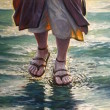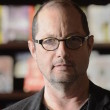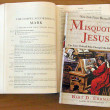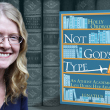The Science of Miracles
by Joe Heschmeyer
Filed under Science, The Church

What happens when an atheist doctor and historian is given access to the Vatican’s Secret Archives to investigate miracle claims? Just such a thing happened in the early 2000s, and both the story behind it, and the doctor’s conclusions, are worth recounting. Dr. Jacalyn Duffin, a hematologist (M.D.) and historian (Ph.D.), was the Hannah Chair of the History of Medicine at Queen’s University from 1988 until 2017, and she’s served as both the President of the American Association... Read More
Why Wouldn’t God Perform More Miracles?
by Karlo Broussard
Filed under The Problem of Evil

If God is a God of miracles as theists claim, then why doesn’t he perform more to stop evil? I must admit this is one question I’ve wrestled with in solidarity with my atheist friends. My initial response is to recall the words of the prophet Isaiah: “For my thoughts are not your thoughts, neither are your ways my ways, says the LORD” (Is. 55:8). While I acknowledge this as true, it leaves me dissatisfied. As a Christian I believe, with St. Paul, that God “works for good with... Read More
Why Miracles Are Not Incompatible with Science
by Karlo Broussard
Filed under Christianity and Science

Skeptics argue that miracles are impossible because the laws of nature are necessary. A miracle, they argue, involves a violation of a law of nature. But the laws of nature cannot be violated. Therefore, miracles must be impossible. One modern skeptic of repute who argues this is Richard Dawkins. In his book The God Delusion, he says, “[M]iracles, by definition, violate the principles of science” (83). Dawkins and other modern skeptics derive this argument from philosophers in the... Read More
What Constitutes a Miracle?
by Karlo Broussard
Filed under God

After reading some exchanges on Facebook that were inspired by my recent blog post concerning miracles, it became clear I need to explain exactly what a miracle is. A miracle is defined as an extraordinary sensible effect wrought by God that surpasses the power and order of created nature. That’s a mouthful, so let’s unpack it. There are five aspects to the definition. Aspect #1: Exclusively attributable to divine power Only God can be the cause of a miracle. This excludes any sort... Read More
Is It Reasonable to Believe in Miracles?
by Karlo Broussard
Filed under Belief

Should I believe in miracles? This question doesn’t pertain to whether I should believe in this miracle or that miracle. It has to do with whether I’m rationally justified in believing in miracles as such. David Hume's Wisdom for the Wise The eightenth-century Scottish skeptic philosopher David Hume argued the wise man should not believe in miracles. The basis for his assertion was what might be called the “repeatability principle”—evidence for what occurs over and over (the... Read More
Trial by Fire: Modernity’s Response to Miracles
by Joe Heschmeyer
Filed under Christianity and Science

Perhaps no single image captures the popular conception of the “Dark Ages” than the idea of trials by ordeal. These infamous trials are the reason we refer to a difficult situation as an “ordeal,” or perhaps a “trial by fire.” One of the most famous depictions of a trial by ordeal is in Monty Python and the Holy Grail. A woman is accused of witchcraft, and rather than gathering evidence or taking any but the most cursory of testimony, an elaborate test is designed... Read More
Science and Miracles
by Dominicans of the Province of St. Joseph
Filed under Science

On June 20th, 2013, Giovanni Giudici, the Bishop of Pavia, pronounced the cure of Danila Castelli to be miraculous, 24 years after her pilgrimage to Lourdes. Her cure, and the 68 other cures proclaimed miraculous, began as simply one more of the more than 7,000 cures that have been reported to the Medical Bureau of the Sanctuary at Lourdes. While all of the cases are marvelous in their own way, only this small fraction survived the many stages of extensive investigation, both medical and... Read More
The Bible and the Question of Miracles: Towards a Christian Response
by Dr. Matthew Ramage
Filed under The Bible

My previous post at Strange Notions underscored the often-unacknowledged philosophical premises at work when believers and non-believers sit down to debate about things biblical. In the course of my argument, I pointed to a possible area of common ground for Catholics and agnostics/atheists. A survey of statements by thinkers as different as Benedict XVI and Bart Ehrman reveals an important agreement upon the reality that everyone carries their own philosophical presuppositions and that... Read More
Bart Ehrman, Benedict XVI, and the Bible on the Question of Miracles
by Dr. Matthew Ramage
Filed under The Bible

“At its core, the debate about modern exegesis is not a dispute among historians: it is rather a philosophical debate.” - Joseph Ratzinger (Pope Benedict XVI) My reflection today revolves around this poignant line from Joseph Ratzinger’s 1988 Erasmus Lecture in which he famously called for a “criticism of criticism.” In penning these words, the German cardinal was looking for a self-criticism of the modern, historical-critical method of biblical interpretation. On the part of... Read More
From Atheist Professor to Catholic: An Interview with Dr. Holly Ordway
by Brandon Vogt
Filed under Atheism, Conversion, Interviews

Growing up, Holly Ordway was convinced God was little more than superstition, completely unsupported by evidence or reason. She later attained a PhD in literature, traveled the country as a competitive fencer, and became a college English professor, none of which left room for God. But one day a smart and respected friend surprisingly revealed he was a Christian. That sent Holly on a search for the truth about God, one that weaved through literature, aesthetics, imagination, and history.... Read More






